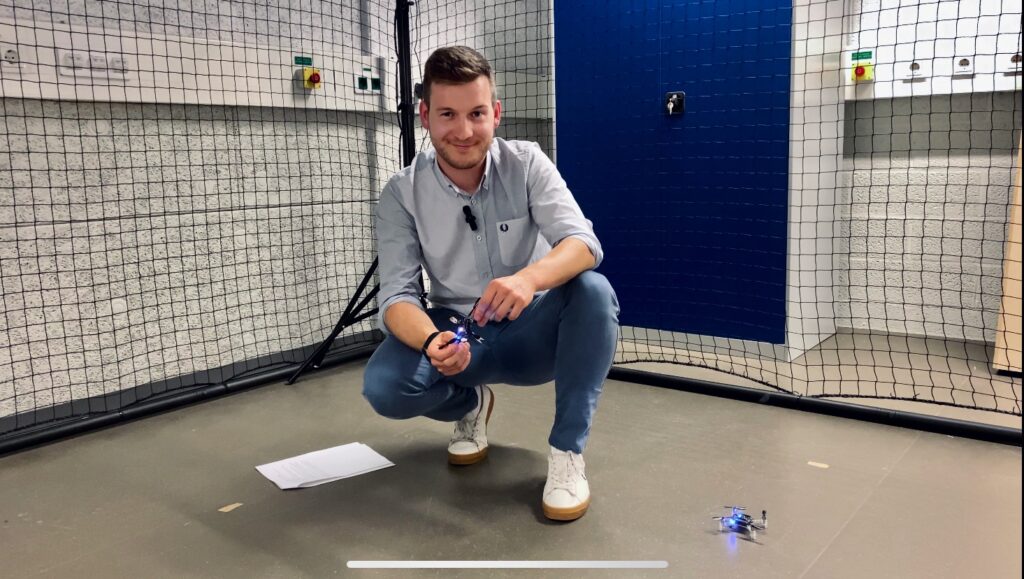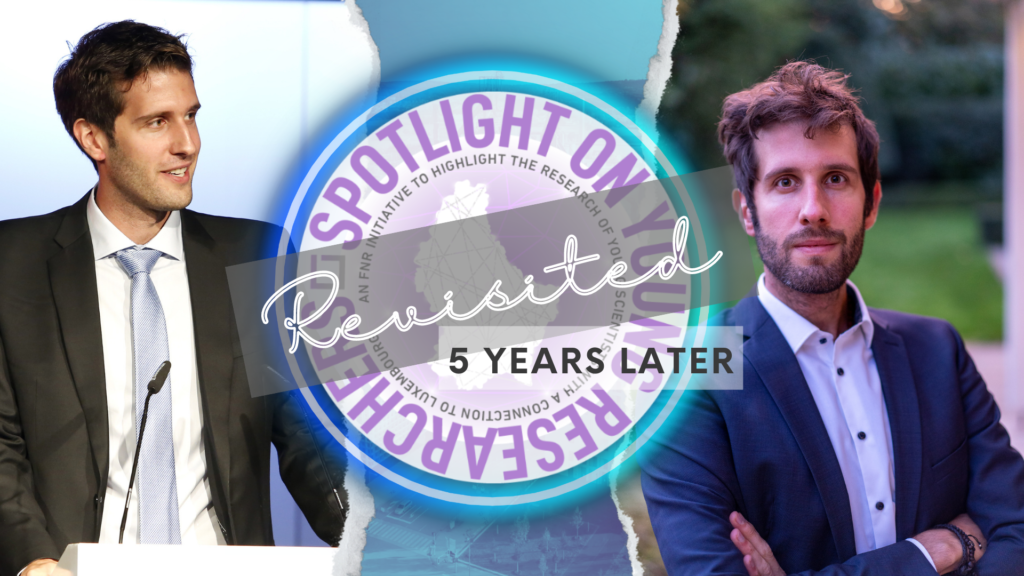
Gilles Tossing’s fascination for the human brain – and why it sometimes fails – led him to the path of research. Now in the second year of his AFR PhD at Université de Montréal in Canada, the Luxembourg national investigates neurodegenerative diseases, with the aim of improving treatments for those affected.
“Research on the brain is recent in history and there is a lot to do in this field. For those reasons, I really have the feeling that my work has a direct influence on many lives, in Luxembourg and around the planet,” says Gilles Tossing.
As part of his PhD project in Canada, Gilles is working towards finding new drugs to treat neurodegenerative diseases such as Huntington’s disease and Amyotrophic Lateral Sclerosis (ALS).
“Surprisingly, we are very similar to the worm, genetically speaking”
“In these diseases the connections between the neurons break which causes early stage symptoms. With my work I aim to find a way to make these connections regrow to restore the complexity of the neuronal network.”
“I work with a microscopic worm, 1 millimetre in size, called C. elegans.” The C. elegans worm has a small nervous system of 302 neurons – in comparison: it is estimated that the human brain contains more or less 100 billion neurons.
“Surprisingly, we are very similar to the worm, genetically speaking. Most of our genes are present in the worm, which has allowed researchers to make big scientific discoveries over the last decades,” Gilles explains, adding that it takes him on average three weeks to test a compound or gene in his worms. In comparison, testing the same compound or gene on mice would take several months.
“Being able to test a lot of different compounds and genes in such a short amount of time, it’s what I like the most about my work. It allows me to investigate a lot of different ideas and hypothesises, without losing a lot of time.”
“In our model, the small nervous system is very easily observable, as we can see the artificial fluorescence in the neurons of a living worm (C. elegans). In the past, the lab in which I work tested already thousands of different drugs for different neurodegenerative diseases, which in my opinion is really impressive.”
“Who would have ever thought that such a small organism could help scientific researchers to make promising breakthroughs?”
Still early in his researcher career, Gilles has already had the chance to present his work at the International Congress of the Genetics Society of America in Los Angeles.
The ultimate goal of the research Gilles is conducting is to find a treatment for neurodegenerative diseases such as Huntington’s disease and Amyotrophic Lateral Sclerosis (ALS). In the United States alone, an average of 15 new ALS cases are diagnosed each day. As the disease progresses, it takes away the ability to walk, dress, write, speak, swallow and the ability to breathe – only 10% of patients survive for more than 10 years[1].
In the case of Huntington’s disease, experts estimate that one in every 10,000 people—nearly 30,000 in the United States, are affected by the disease. The disease progresses over 10 to 25 years, eventually leaving patients unable to care for themselves, due to the disease characteristics of jerking uncontrollable movement of the limbs, trunk, and face, as well as a progressive loss of mental abilities, and the development of psychiatric problems[2].
“Statistics don’t lie; many families live with a person who’s struggling with a neurodegenerative disease. I worked close with different organizations that are in contact with families every day. They put a lot of trust and hope in research to eventually find treatments,” Gilles says, adding:
“In my opinion, to improve the patient’s situation, it is very important that researchers offer their time to work with the health system, disease organizations or with the public. Therefore, my goal as a researcher is to use my knowledge and expertise beyond science to help the Luxembourgish families that are affected by rare neurodegenerative diseases.”
Gilles points out that his current research director Dr Alex Parker recently got significant media attention in Canada because he found a drug that showed to slow down ALS in a clinical phase 2a trial. “I didn’t participate in this project precisely, but it does show that our approach works and can help to find drugs in a fast manner,” he explains.
“I regularly read the papers that are produced by the University and I like their innovative and open-minded approach to research”
Originally from Luxembourg, but currently on the other side of the Atlantic Ocean, Gilles has been keeping an eye on the progress of Luxembourg’s young research landscape:
“Luxembourg is currently a very attractive place for research. The University of Luxembourg has built an interesting environment to study neurodegenerative diseases, with a particular importance on Parkinson’s disease.
“I regularly read the papers that are produced by the University and I like their innovative and open-minded approach to research. I’ve studied and worked at 4 different universities, in 3 different countries and in my opinion the quality of the laboratories and the research in Luxembourg is very competitive.”
[1] Source : ALS Association – link : http://www.alsa.org/about-als/facts-you-should-know.html
[2] Source : http://www.healthcommunities.com/huntingtons-disease/overview-of-huntingtons.shtml
Published 22 June 2018






